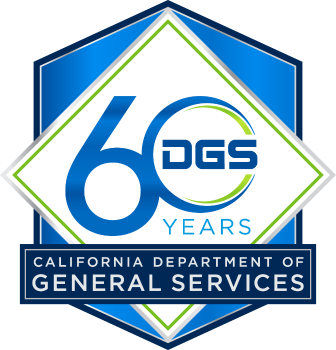Catastrophic Leave Program
The Catastrophic (CAT) Leave program allows employees who have exhausted their leave credits and must miss work due to a prolonged illness or injury (including that of an eligible family member), or due to a natural disaster, to request CAT leave.
CRITERIA/LIMITATIONS
There is no minimum state service requirement for eligibility.
Excluded employees may use catastrophic leave credits for up to twelve continuous months for a single occurrence. Represented employees are limited to one three-month period annually, which may be extended up to six months with the approval of DGS OHR Personnel Officer.
Employees may receive CAT leave in concurrence with State Disability Insurance (SDI), Non-Industrial Disability Insurance (NDI), or Enhanced Non-Industrial Disability Insurance (ENDI), which are wage replacement benefits administered by the Employment Development Department (EDD), to supplement their income and cannot exceed the total amount of their regular gross pay. Eligibility requirements for CAT leave and EDD benefits must be met in order to supplement with donations.
Employees are not eligible for CAT leave if they have filed a Workers’ Compensation claim regardless if the claim is pending, delayed, or accepted.
Definitions
Catastrophic Leave
Leave taken by an employee who has exhausted his/her available credits. This leave must be based on an illness or injury to the employee, or incapacitated family member who will require care from the employee, or an employee who misses time and is facing a financial hardship due to a natural disaster.
Catastrophic Leave Credits
Leave credits provided to an employee who has been approved for CAT leave.
Excluded Employee
An employee designated as managerial, supervisory, exempt, or confidential.
Family Member
- Represented employees – Family member is defined in the bargaining unit (BU) contracts.
- Excluded employees – A family member is the employee’s mother, father, husband, wife, son, daughter, brother or sister, or any person residing in the employee’s household.
Illness/Injury
A catastrophic illness or injury is defined as an illness or injury that is serious and expected to incapacitate the employee or a member of the employee's family or household, and which creates a financial hardship because the employee has exhausted all eligible leave credits.
Natural Disaster
A natural disaster is defined as an act of nature, such as a flood or an earthquake, that has had an effect on the employee's principle residence and the Governor has declared a state of emergency in the county where the employee resides.
Represented Employee
An employee designated as rank and file.
Donating Leave Credits
Any employee who has sufficient leave credits to transfer, may donate eligible leave credits to an employee approved to receive donations.
Donations may be accepted from employees in any State agency.
For excluded employees and most rank-and-file employees, donations must be a minimum of one hour and thereafter, in whole hour increments. This amount can vary by Bargaining Unit (BU), especially in the case of a natural disaster. Please refer to the applicable BU contract for specific donation criteria.
To donate eligible leave credits, complete the CAT Leave Donation Record (DGS OHR 905) and send to the DGS OHR Personnel Specialist via courier or fax. These donations are irrevocable. If donation form is received after the due date stated on the announcement, the form will be returned to the donor and leave credits will not be transferred.
ELIGIBLE LEAVE CREDITS
Eligible leave credits include Annual Leave, Vacation, CTO, Holiday leave credits, and Personal Holiday. Refer to applicable BU contract.
NON-ELIGIBLE LEAVE CREDITS
Non-eligible leave credits include Sick Leave, Furlough hours, Personal Development Days, Personal Leave, Educational Leave, Informal Holiday Time, and any other leave without cash value.
Process
The table below depicts the roles and responsibilities for requesting/processing catastrophic leave.
| ROLE | RESPONSIBILITY |
|---|---|
| Employee |
Note: The form will be returned if incomplete and/or medical verification is not provided or if received after the date the employee returned to work. Retroactive CAT leave requests cannot be approved and will be returned. Employees must use their leave credits if they continue to accrue prior to using donated credits. If the employee returns to work before the anticipated return date and donation requests remain in the holding account, they will be returned to the donor in 30 days. |
| Supervisor |
|
| OHR Medical Coordinator |
|
| Personnel Officer |
|
| Personnel Specialist |
|
Resources
Responsible Control Agency
- California Department of Human Resources
Laws and Regulations
- California Code of Regulations, section 599.913, 599.925, 599.925.1
- Government Code section 19991.14
Other Resource Materials
Contact
Department of General Services
Office of Human Resources
West Sacramento, CA 95605
